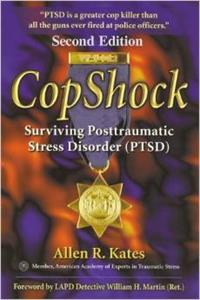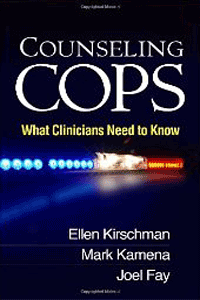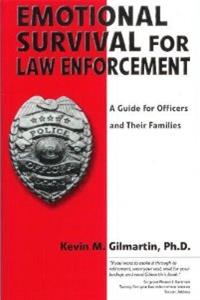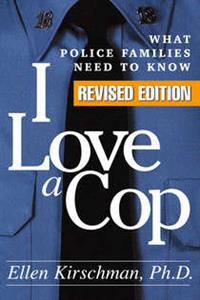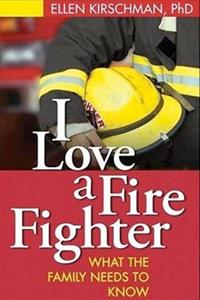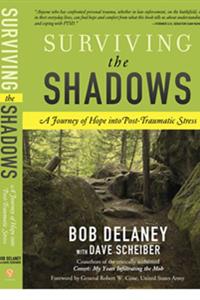Resources - Books
|
CopShock, Second Edition: Surviving Post-traumatic Stress Disorder (PTSD)
Allen R. Kates, MFAW, BCECR, Holbrook Street Press (2008) ISBN# 0966850122 Nightmares, flashbacks, anger, concentration problems, emotional detachment, avoidance of people and places... These are some of the signs of PTSD. As many as one in three cops may suffer from PTSD, a condition that could lead to depression, suicidal thoughts, addictions, eating disorders as well as job and family conflict. CopShock prepares police officers for the aftermath of horrific trauma, helps families understand PTSD's effect on their loved ones, tells true stories of officers-men and women-with PTSD, and offers over 200 support sources. |
|
Counseling Cops: What Clinicians Need to Know
Ellen Kirschman, Mark Kamena and Joel Fay, Guilford Press (2007) ISBN# 1462512658 Grounded in clinical research, extensive experience, and deep familiarity with police culture, this book offers highly practical guidance for psychotherapists and counselors. The authors vividly depict the pressures and challenges of police work and explain the impact that line-of-duty issues can have on officers and their loved ones. Numerous concrete examples and tips show how to build rapport with cops, use a range of effective intervention strategies, and avoid common missteps and misconceptions. Approaches to working with frequently encountered clinical problems--such as substance abuse, depression, trauma, and marital conflict--are discussed in detail. |
|
Emotional Survival for Law Enforcement: A Guide for Officers and Their Families
Kevin M. Gilmartin, E-S Press (2002) ISBN# 0971725403 Addresses the dynamics that can transform within a matter of a few years, idealistic and committed law enforcement officers/employees into cynical, angry individuals who begin having difficulties in both the personal and professional aspects of their lives. It points out how law enforcement personnel develop a social perceptual set that can potentially see employees engaging in inappropriate behavior patterns and decision-making that leads to both administrative and can unfortunately in some personnel lead to criminal difficulties. |
|
I Love a Cop, Revised Edition: What Police Families Need to Know
Ellen Kirschner, Guilford Press (2006) ISBN# 159385353X Will police work change the person you love? Are police marriages destined to fail? What are the chances of your loved one being killed in the line of duty? Since its publication nearly a decade ago, I Love a Cop has earned high praise from family members and police departments worldwide for providing answers to these and other critical questions. Now, this trusted resource has been revised to address the realities of post-9/11, post-Katrina police work. |
|
I Love a Fire Fighter: What the Family Needs to Know
Ellen Kirschner, Guilford Press (2004) ISBN# 1593850638 Patterned on the outstanding success of I Love a Cop, this is the first book of its kind written exclusively for fire fighters and their families. Challenging two-dimensional stereotypes, Dr. Ellen Kirschman portrays fire fighters as they really are: complex men and women doing one of the world's toughest jobs and trying to fit comfortably into two families-the one at the firehouse and the one at home. I Love a Fire Fighter takes us on a journey from stationhouse banter to a four-alarm blaze and harrowing ride with paramedics on the midnight shift. |
|
Surviving the Shadows: A Journey of Hope into Post-Traumatic Stress
Bob Delaney with Dave Scheiber, Sourcebooks (2011) ISBN# 1402263554 Given the thousands of soldiers returning physically and emotionally crippled from America's wars, the latest from the authors of Covert: My Years Infiltrating the Mob proves especially timely. After serving undercover with the Mafia, Delaney (a former New Jersey state trooper) realized that he was suffering from post-traumatic stress disorder (PTSD), and the stigma, misunderstanding, and shame he endured inspired him to educate others. Here, he offers therapy ideas that incorporate physiology and psychology, and introduces groups working to help soldiers and law enforcement officers (two groups with high numbers of PTSD sufferers) cope with, and overcome, their difficulties. Delaney wants to change the definition of PTSD and help people understand that it is not a sign of weakness, but rather a normal physiological response to untenable amounts of stress. With this change of attitude, people will hopefully feel more comfortable seeking help and lives may even be saved. Delaney and Scheiber successfully balance scientific fact with personal testimonial and write with an empathetic, engaging tone. Though the book will be compelling for readers with personal connections to the military or law enforcement, even the most skeptical will want to know what can be done on the individual and national level to help PTSD sufferers. |

